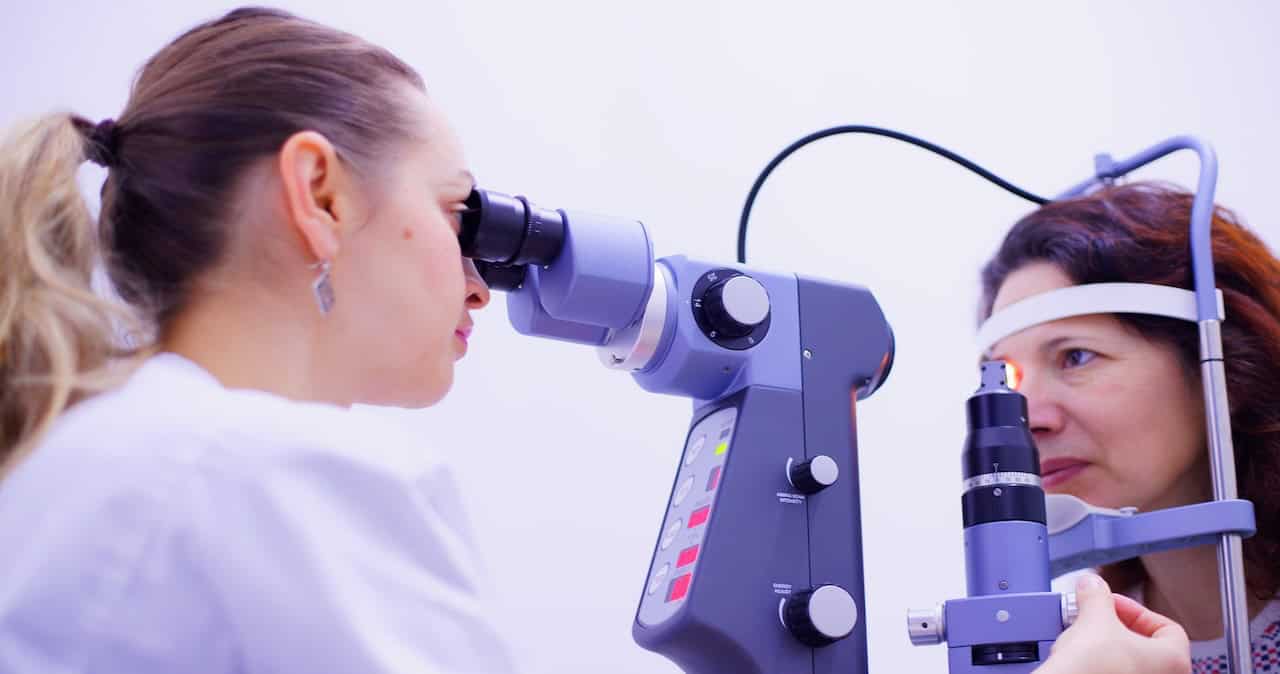How To Meet The A-Levels To Become A Doctor

Table of Contents
- What A levels do you need for medicine?
- What A-Levels do you Need to Meet Entry Requirements and Become a Doctor in the UK?
- What A-Level Grades do you need to Study Medicine?
- Can A-Level Electives be used for Medical School?
- Do you Need to Have Good A-Levels for Graduate Medicine Programmes?
- Can you Study Medicine in Europe and North America with A-Levels?
- What A-Levels do International Students need to Become a Doctor Abroad?
- How to Plan for A-Levels to Become a Doctor
What A levels do you need for medicine?
A-Levels are vital if you’re a UK student wanting to pursue a medicine degree in the UK. They show your academic capabilities to withstand the tough curriculum and rigour of medical school. Additionally, they demonstrate your prior knowledge of relevant subject areas.
Some medical schools ask for a list of A-Level exams in which they specify certain subjects that must be passed, namely Biology and Chemistry. This is done to ensure that you have the necessary knowledge for the medical sciences curriculum.
What exactly are A-Levels?
The A-Levels (Advanced Level qualifications) are subject-based qualifications often taken by students in the UK between the ages of 16 and 18. They tend to focus on a few key subjects, usually three or four, that are essential for university admissions. Most students choose their A-Level subjects based on two key factors: first, the subjects that align with their future career plans; and second, their current academic strengths.
In the case that you want to study medicine, Biology and Chemistry are the two A-Levels you must have. Should you wish to choose a science-related elective like Physics or Mathematics, or another science, these subjects may be considered of extra value to your medical school application.

What A-Levels do you Need to Meet Entry Requirements and Become a Doctor in the UK?
To meet entry requirements for medical school in the UK, certain A-Levels are non-negotiable. Biology and Chemistry are essential, as they provide the foundation in life sciences and chemical processes necessary for medical studies. A third A-Level, such as Mathematics or Physics, is often preferred but not always mandatory. Nevertheless, science-related A-Levels can still strengthen your application.
Medical schools use strict entry requirements around A-Levels, too. Specifically, they frequently require AAA at A-Level. If not then you will have to get A*AA in those grades, particularly for Biology and Chemistry. During the medical school application process, firstly, these are core A-Levels to have that demonstrate you have the required scientific knowledge. Secondly, medical schools will look at what result you received in the subject as they evaluate the best candidates.
Overall, A-Level results are a critical factor in the medical school application process. If you don’t achieve these kinds of grades, your chances of being admitted to UK universities are significantly reduced. Therefore, it’s important to aim for the maximum number of points a medical school could award in a UK school. These points typically refer to the scores or grades you achieve in your A-Level subjects, as well as any additional factors such as entrance exams (like the UCAT or BMAT), personal statements, and interviews. Achieving high marks in your A-Levels, especially in Biology and Chemistry, increases your overall score, giving you a competitive edge when applying to medical schools.
How Many A-Levels Do You Need to Study Medicine?
To study medicine in the UK, students typically need a minimum of three A-Levels.
The essential subjects for all medical schools are Biology and Chemistry, as they ensure students are well-prepared for science modules. The third A-Level is more flexible. While many medical schools prefer it to be another science, such as Mathematics or Physics, some schools will accept a non-science subject, provided students perform well in it.
What A-Level Grades do you need to Study Medicine?
Overall, the standard required A-Level grades are AAA or A*AA, with A or A* in Biology and Chemistry. Medical school admissions in the UK are highly competitive so attaining these types of grades is crucial.
The lowest grade you can get at an A-Level is E or above. Regardless of if you receive a pass in these essential two subjects, it’s unlikely that this will look good on a medical school application. Even though all the grades of A-Level are taken into account, Biology and Chemistry are the two that hold the most weight, and a low grade in these items will greatly influence your chances of acceptance. You should have top grades in all A-Level subjects—preferably A or A*— to meet admissions requirements and good grades in GCSEs.
A strategy to strengthen your application can then be an extra fourth A-level, showing that you can manage a heavy workload. Furthermore, choosing subjects that display a well-rounded academic profile in challenging subjects. Equally, you can show your commitment to related extracurriculars such as volunteering in medical or health settings.
Can A-Level Electives be used for Medical School?
A-Level electives, such as Psychology, Mathematics, Physics, or even a language like French, can be valuable for those considering future medical specialisations. For instance, Psychology can be beneficial for aspiring psychiatrists, while Mathematics and Physics may support a career in surgery or radiology.
Despite this, there’s usually only three A-Levels required for medical school admissions: Biology, Chemistry, and then, typically, a medicine-related subject. The electives might be additional assets to your academic background, but keep in mind these can’t replace the major of Biology and Chemistry.
While taking A-Level electives isn’t mandatory, it can demonstrate well-roundedness and academic capability, especially if you choose challenging subjects and perform well. If you are confident in handling the workload, an elective can help showcase additional skills, such as analytical thinking or language proficiency, which can be beneficial in your future medical career.

Do you Need to Have Good A-Levels for Graduate Medicine Programmes?
Graduate medicine programmes in the UK are ideal if you already hold a relevant undergraduate degree like Bachelor’s of Science. Not only is the Bachelor’s Degree in a science-related field a requirement, but also your university academic transcripts. Despite this, your A-Level results might still be part of your application, as can be the case with a highly competitive programme.
Basically, the average entry requirements for graduate medicine programmes are normally a 2:1 or higher in a science-related Bachelor’s Degree. Additionally, you may also need to have completed pre-medical courses, such as Biology and Chemistry. Some medical schools might also ask the applicants to show that they have performed well in A-Levels by providing at least ABB or better, mainly in the related subjects.
What is more important for Graduate Entry Medicine: A-Levels or Bachelor’s Degree Academic Transcripts?
For graduate entry medicine in the UK, your Bachelor’s Degree academic transcripts are significantly more important than your A-Level results. Unlike undergraduate entry programmes, which focus heavily on A-Level grades, graduate entry medicine evaluates your performance at the university level, typically requiring a 2.1 GPA or higher in a relevant field such as Biomedical Science, Biology, or Chemistry.
Keep in mind that there’s no guarantees with graduate entry applications. Undeniably, having strong A-Levels, particularly in Biology and Chemistry, could help bolster your application. Even if you meet the Bachelor’s Degree requirement but have weaker A-Level grades, you need to demonstrate strong academic performance at the university level and relevant healthcare experience to offset this. Gaining a high GAMSAT or UKCAT score can also strengthen your application and make up for less-than-perfect A-Levels.
If you’re not going to pursue medical training directly after secondary school then work on building and maintaining a strong GPA at university. Then, if you’re applying to graduate programmes you can demonstrate strong grades in relevant subjects. Other areas like medical and community internships or healthcare experience carry weight in graduate programme applications, too. If you did achieve strong A-Level grades in Biology and Chemistry then this is still worth including in a graduate entry application as it shows your academic excellence.

Can you Study Medicine in Europe and North America with A-Levels?
Both UK and international students can pursue undergraduate and graduate medicine programme routes in Europe and North America. In Europe, many countries offer 6 or 7-year undergraduate medicine programmes, often directly after high school. Comparatively, in North America students have the option to complete a Bachelor’s Degree or pre-medicine pathways before applying to graduate medicine programmes that are typically 4 years long.
What are the standard entry requirements other than A-Levels for European Medical Universities
Generally, admission requirements for European medical schools vary by country. Even so, the most common requirements are secondary school qualifications that correspond to A-Levels. Depending on the region you’re from this might be a High School Diploma (U.S.), Baccalaureate (France), Matura (Switzerland), or the A-Level equivalent from another European country. For graduate programmes, you nearly always need to hold a science-related Bachelor’s Degree like Biomedical Science, your tertiary academic transcripts, and entry test results just like in the UK.
What are the standard entry requirements other than A-Levels for North American Medical Universities
In North America, for undergraduate entry programmes, you’ll need to have completed a High School Diploma or its equivalent. In addition to this, undergraduate and graduate programmes include specific coursework in Biology, Chemistry, and Physics. You can meet this requirement through a pre-medicine programme, that is sometimes a foundation study year prior to a programme starting, or through a Bachelor’s Degree that meets the science modules. In order to enrol in these programmes, the Medical College Admission Test (MCAT) is also usually required.
What are the standard A-Level academic equivalents for international medicine programmes
United States: High School Diploma + Undergraduate Degree + MCAT
Canada: High School Diploma + Undergraduate Degree + MCAT
Australia: Higher School Certificate (HSC) +Undergraduate Degree (e.g., Bachelor of Medical Science)
Germany: Abitur +Medical School entrance exam
What are the standard subject requirements for International medicine programmes
Similar to A-Levels in the UK, you’ll need to prepare for each country having specific subject requirements for medical school. For example, you’ll most often need to have completed science courses (Biology, Chemistry, and sometimes Physics) at a high level to qualify for medical programmes. Additionally, in some regions, like Bulgaria, you may also need to sit entry exams in Biology and Chemistry along with submitting your full application.
How do these international entry requirements compare to UK medical school entry requirements?
When it comes to how student academic results affect medical school applications, most students find that European and North American regions are more flexible than the UK. Above all, the UK is usually very strict with high A-Level scores in Biology and Chemistry, as well as other admissions requirements. Comparatively, European and North American schools usually look at a wider spectrum of areas to weight applications. These include non-cognitive attributes beyond these specific exams like academic records, test scores, and related experience in healthcare. Though it’s no guarantee of admission outside the UK, there’s a lot of advantages to having a broader educational and experience background than just good A-Levels.

What A-Levels do International Students need to Become a Doctor Abroad?
If you’re serious about applying to European and North American medical schools, you’ll still need to plan for the admissions requirements of each region. Your first port of call is researching specific schools because requirements can also vary within countries and for individual medical schools. Besides giving you an idea of the range of programmes, you’ll also start to see what can impact your eligibility for admission.
A-Level Entry Requirements for Medical School in Europe
Undergraduate Medicine
When it comes to applying for undergraduate medicine in Europe, there are standard requirements for high school-level qualifications that include good grades in Biology and Chemistry. Additionally, some colleges may have entry exams in Biology and Chemistry as well as an entrance test which may include BMAT or UCAT. These tests will depend on the institution and the country.
Graduate Medicine
Across Europe, the standard graduate entry requirements are a science-related Bachelor’s Degree like Biomedical Science. While A-Levels might not be required for graduate entry, your undergraduate university transcripts are so a good GPA is preferable. Some countries may also require tests such as GAMSAT or MCAT and proof of any healthcare experience or clinical training.
Extra Preparation and Prerequisites
Even if you speak English fluently as a second language, some International students may need to take special language proficiency tests such as IELTS and TOEFL. Another important aspect includes knowledge about the system of medical education in the given country, since such verb expecta and criteria of fulfillment may vary significantly.
Advantages for UK and International Students
Both UK and international students are able to take advantage of the diverse and competitive European courses available across the continent. The scope of options vary across the region with undergraduate and graduate courses available in a range of languages. International programmes taught in English are well-established throughout Europe with well-established medical universities in: Greece, Romania, Bulgaria, Serbia, Armenia, and Georgia.
A-Level Entry Requirements for Medical School in North America
Undergraduate Medicine
You can opt to study undergraduate medicine in North America in the Caribbean only as in the U.S. and Canada, you must first study a premedicine Bachelor’s Degree route including specific prerequisite courses such as General Biology, General Chemistry, Physics and Mathematics.
At Caribbean medical schools, your A-Levels (or other international equivalent) will be relevant as they’ll show your relevant high school qualifications. The admissions process for Caribbean medical schools isn’t as strict as the U.S. and Canada though pass marks in your high school-level subjects is necessary.
Graduate Medicine
For graduate entry into North American medical programmes, you’re required to take the Medical College Admission Test (MCAT). Typically, medical schools require a minimum GPA of 3.0 or higher and a Bachelor’s Degree in a science-related discipline such as Biomedical Science.
Extra Preparation and Prerequisites
International students considering Caribbean medical schools must often meet additional requirements, including proof of English proficiency (via IELTS or TOEFL), and some schools may require a specific number of hours in clinical or volunteer work.
Advantages for UK and International Students
Studying medicine anywhere in North America is highly advantageous for UK and international students. You’ve got a range of great schools to choose from and programmes are taught in English. Right now, Caribbean medical schools are becoming the go-to choice for UK and international students as you’ll have lower tuition fees and shorter programmes compared to U.S. and Canadian schools. Plus, many Caribbean schools have official clinical rotations partnerships with U.S., Canadian, and UK hospitals. You can have the best training available with experience, opportunities for international practice, and the full study medicine abroad. The following Caribbean countries offer world-class undergraduate and graduate programmes: Antigua, Anguilla, St. Vincent and the Grenadines, and Barbados.

How to Plan for A-Levels to Become a Doctor
What A levels do you need for medicine: Four success strategies for international students
- Prepare to study the A-Levels you need for medical school
International students hoping to study medicine need to concentrate on core A-Level subjects. In terms of A-Level, most medical schools in the UK will require Biology and Chemistry with a third A-Level note usually something like Maths or Physics recommended. This will be a priority subject-wise and you should have good grades there as this will act as an entry requirement and show that you are academically ready for the med school challenges.
- Practice smart study techniques
Effective study techniques can significantly enhance your A-Level performance. Use active learning methods, such as summarising information, teaching concepts to peers, or creating flashcards. Establish a study schedule that balances all subjects and includes regular revision sessions. Practice past exam papers to familiarise yourself with the exam format and identify areas where you need improvement.
- Seek academic advice from teachers, professors, and medical school experts
If your teachers, professors, and medical school advisors are there, do not hesitate to ask them for help. They are the ones who can shed light on the A-Level subjects you need for medical school, effective study strategies, and application processes. Except your classes and discourse with the academic staff about your progress and areas of weakness as well as asking for advice will be the best options for being success when you are.
- Research your top medical programmes and know your admission strengths
Admission requirements for medical schools come in varied shapes and sizes. Therefore it’s vital that you look into your desired programmes thoroughly. Find out what the specific A-Level grades and subjects are that every school requires. Reflect on your academic standing and tailor your study schedule according to your interests, concentrating on choosing the topics that are in conformity with your preferred schools. Through strategic thinking and awareness of each programme’s individual prerequisites, you’re on-track to creating an application plan that enables you to succeed.
Conclusion
A-Levels are not just a requirement – they’re a major destination on a journey that will change your life. Along the way, you’ll develop and prove essential skills that you’ll carry into medical school and your future career as a doctor. Embrace this adventure and hone your study habits to prepare for the rigorous demands ahead. As you explore the best international medical programmes for you, remember that SME is here to help guide you well before you begin your application process. Take the first step towards your medical career today and receive your university information pack to take your planning to the next level.



















